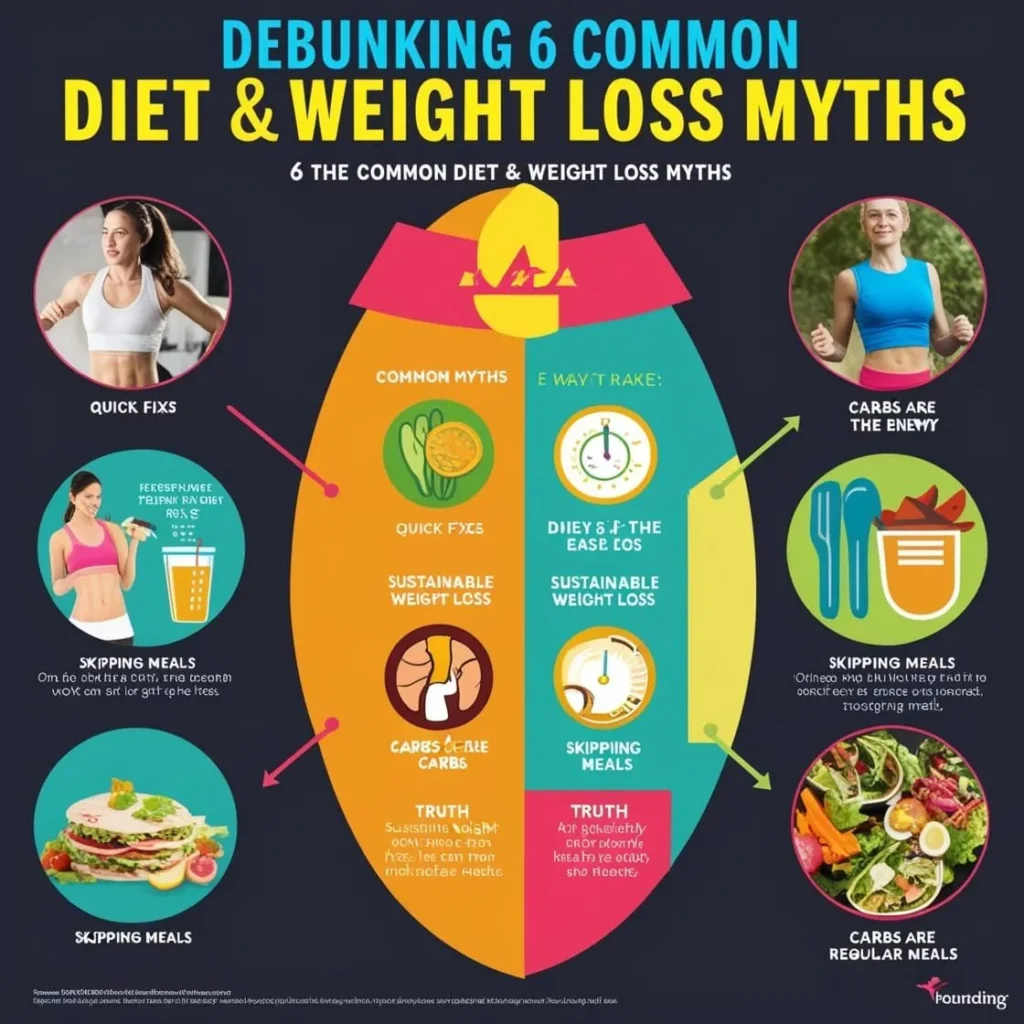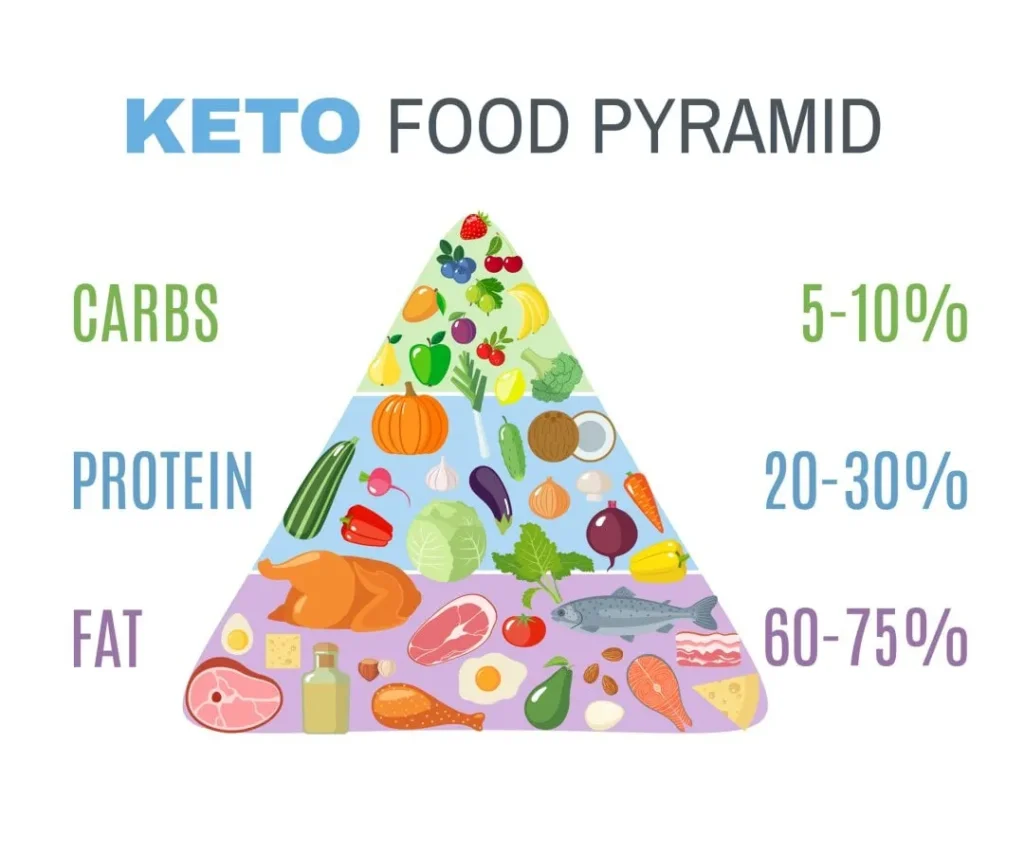Debunking Myths: Is the keto diet Really Safe?
The ketogenic diet, or keto diet, has gained immense popularity in recent years as a way to lose weight and improve overall health. However, with this popularity comes a lot of misinformation and myths about the safety and effectiveness of the keto diet. In this article, we will debunk some of the most common myths surrounding the keto diet and provide evidence-based information to help you make an informed decision about whether or not the keto diet is safe for you.
What is the keto diet?
Before we delve into debunking myths about the keto diet, let’s first understand what the keto diet is all about. The ketogenic diet is a high-fat, low-carbohydrate diet that has been shown to promote weight loss and improve various health markers, such as blood sugar levels and cholesterol levels. The primary goal of the keto diet is to put your body into a state of ketosis, where it burns fat for fuel instead of carbohydrates.
To achieve ketosis, you must drastically reduce your carbohydrate intake and increase your fat intake. Typically, a keto diet consists of about 70-75% fat, 20-25% protein, and 5-10% carbohydrates. This strict macronutrient ratio is necessary to trigger ketosis and reap the benefits of the keto diet.
Myth #1: The keto diet Is Unsafe Because It Eliminates Entire Food Groups
One of the most common myths about the keto diet is that it is unsafe because it eliminates entire food groups, such as fruits, grains, and legumes. Critics of the keto diet argue that cutting out these food groups can lead to nutrient deficiencies and other health problems.
However, it is important to note that the keto diet is not necessarily eliminating these food groups; it is simply restricting them to a certain extent. While fruits, grains, and legumes are high in carbohydrates, there are plenty of low-carb alternatives that can provide the same nutrients. For example, you can get vitamins and minerals from leafy green vegetables, healthy fats from avocados and nuts, and fiber from seeds and berries.
Additionally, the keto diet is not meant to be a long-term lifestyle; it is typically used as a short-term intervention to achieve specific health goals, such as weight loss or improved blood sugar control. Once these goals are met, you can gradually reintroduce some of the restricted food groups back into your diet while still maintaining a healthy balance of macronutrients.
Myth #2: The keto diet Causes Nutrient Deficiencies
Another common myth about the keto diet is that it causes nutrient deficiencies because it restricts certain food groups. Some people believe that cutting out carbohydrates means missing out on essential vitamins and minerals that are found in fruits, grains, and legumes.
While it is true that some nutrients are more abundant in carbohydrates, such as vitamin C in fruits and fiber in whole grains, it is still possible to get all the essential nutrients you need on a keto diet. As mentioned earlier, there are plenty of low-carb alternatives that can provide the same nutrients, such as vegetables, nuts, and seeds.
In fact, some studies have shown that the keto diet can actually improve nutrient intake in certain populations. For example, people with type 2 diabetes who follow a keto diet have been shown to have better blood sugar control and lower levels of inflammation, which can lead to improved nutrient absorption and utilization.
Myth #3: The keto diet Is Bad for Your Heart
One of the most persistent myths about the keto diet is that it is bad for your heart because it is high in saturated fats. For decades, saturated fats have been demonized as the cause of heart disease, leading many people to avoid foods like butter, cheese, and red meat.
However, recent research has shown that saturated fats are not as harmful as once believed, especially when consumed as part of a low-carbohydrate diet like the keto diet. In fact, some studies have even suggested that saturated fats may have beneficial effects on heart health by increasing levels of HDL (good) cholesterol and reducing levels of triglycerides.
Furthermore, the keto diet has been shown to improve other risk factors for heart disease, such as blood sugar levels, inflammation, and blood pressure. By promoting weight loss and reducing insulin resistance, the keto diet can help lower your risk of heart disease and other chronic conditions.
Myth #4: The keto diet Is Not Sustainable
Many people believe that the keto diet is not sustainable in the long term because it is too restrictive and difficult to follow. They argue that cutting out carbohydrates can lead to cravings, mood swings, and low energy levels, making it hard to stick to the diet for an extended period of time.
While it is true that the keto diet can be challenging, especially in the beginning when your body is adjusting to a new way of eating, it is definitely sustainable for many people. In fact, there are countless success stories of individuals who have been able to maintain a keto lifestyle for years and reap the benefits of improved health and weight loss.
To make the keto diet more sustainable, it is important to focus on whole, nutrient-dense foods and listen to your body’s hunger and satiety cues. By incorporating a variety of fats, proteins, and vegetables into your meals, you can create a balanced and satisfying diet that is easy to stick to in the long run.
FAQs
Q: Is the keto diet safe for everyone?
A: The keto diet is generally safe for most people, but it may not be suitable for individuals with certain medical conditions, such as type 1 diabetes or pancreatitis. It is important to consult with a healthcare provider before starting a keto diet to ensure that it is safe for you.
Q: Can I do the keto diet if I am vegetarian or vegan?
A: Yes, it is possible to do a vegetarian or vegan keto diet by focusing on plant-based sources of fats and proteins, such as avocados, nuts, seeds, and tofu. However, it may require more planning and effort to ensure that you are getting all the essential nutrients on a plant-based keto diet.
Q: How long does it take to get into ketosis?
A: The time it takes to get into ketosis can vary from person to person, but it typically takes about 2-4 days of following a strict keto diet to enter ketosis. Factors such as carbohydrate intake, activity level, and metabolic rate can influence how quickly you reach ketosis.
Q: Are there any side effects of the keto diet?
A: Some people may experience side effects when starting a keto diet, such as fatigue, headaches, and digestive issues. These symptoms are often temporary and can be alleviated by staying hydrated, consuming electrolytes, and gradually increasing your fat intake.
Q: Can I exercise on a keto diet?
A: Yes, you can exercise on a keto diet, but it may take some time for your body to adjust to using fat for fuel instead of carbohydrates. It is important to stay hydrated, replenish electrolytes, and listen to your body’s signals during exercise to ensure that you are getting the energy you need.
In conclusion, the keto diet is a safe and effective way to lose weight and improve overall health for many people. By debunking common myths about the keto diet and providing evidence-based information, we hope to empower you to make an informed decision about whether or not the keto diet is right for you. Remember to consult with a healthcare provider before starting any new diet or lifestyle regimen to ensure that it is safe and appropriate for your individual needs.


